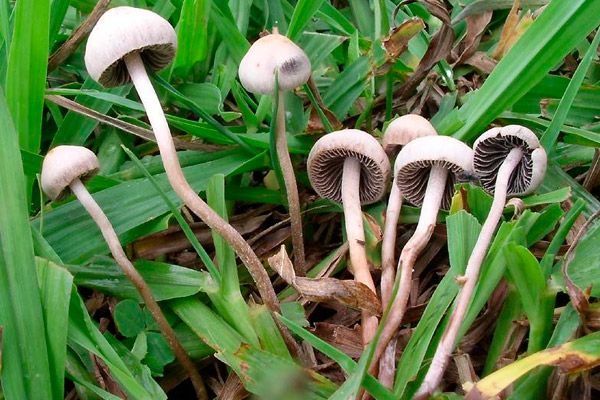New publications
Depressed? Hallucinogenic mushrooms can help.
Last reviewed: 20.05.2018

All iLive content is medically reviewed or fact checked to ensure as much factual accuracy as possible.
We have strict sourcing guidelines and only link to reputable media sites, academic research institutions and, whenever possible, medically peer reviewed studies. Note that the numbers in parentheses ([1], [2], etc.) are clickable links to these studies.
If you feel that any of our content is inaccurate, out-of-date, or otherwise questionable, please select it and press Ctrl + Enter.
Scientists say hallucinogenic compounds found in some mushrooms could help develop drugs to treat depression.
The psychedelic (causing mental and physical dysfunctions of the body) effect of some types of mushrooms is associated with the substance it contains - psilocybin, and scientists are sure that this substance can help people with alcohol addiction, anxiety, neuroses (obsessive states). As some studies show, people who take psychedelics are less prone to suicide and are not as susceptible to psychological stress.
Psilocybin works similarly to antidepressants, acting on receptors in the brain and scientists believe it may be useful in treating depression.
Antidepressants and cognitive behavioral therapy are now most often used to treat depression, but in 1 out of 5 cases, treatment is ineffective, and relapses are common.
At Imperial College London, specialists led by Professor Robin Carhart-Harris studied the effect of psilocybin on people with depressive disorders. The study involved 12 people (6 men and 6 women) who had moderate to severe depression. Each participant received 2 courses of antidepressants, but the treatment did not produce the expected results. All but one volunteer visited a psychotherapist. The study participants had no history of psychotic disorders in their families, and their relatives did not suffer from any mental disorders, alcohol or drug addiction.
Scientists prescribed two courses of psilocybin to each volunteer: 10 milligrams in the first week, 25 milligrams in the second. The treatment took place under the supervision of psychiatrists, in a special room with dim lighting and music. Doctors helped patients and monitored their condition throughout the entire treatment period.
During the treatment, as well as after the end of the psilocybin course, the participants underwent magnetic resonance imaging. As a result, scientists found that maintenance therapy with psilocybin has a positive effect on the condition of patients, in addition, the drug is safe and well tolerated. Three months after the end of the treatment, half of the participants had reduced symptoms of depression.
Experts note that the psychedelic effect is observed within 30-60 minutes after taking the drug. Volunteers did not show any serious side effects; before taking the drug, patients felt anxious, but after psilocybin began to act, the anxiety passed. Nine people experienced confusion, four experienced temporary nausea, and four more complained of headaches.
After 7 days, specialists noted improvements in all patients, with 8 patients in temporary remission. After 3 months, 7 patients continued to improve, with 5 of the 7 patients in remission.

According to scientists, despite the fact that psilocybin, like antidepressants, acts on brain receptors, it acts faster.
According to the study's authors, more research is needed to confirm the effectiveness of psilocybin and compare its effects with those of other drugs used to treat depression.

 [
[